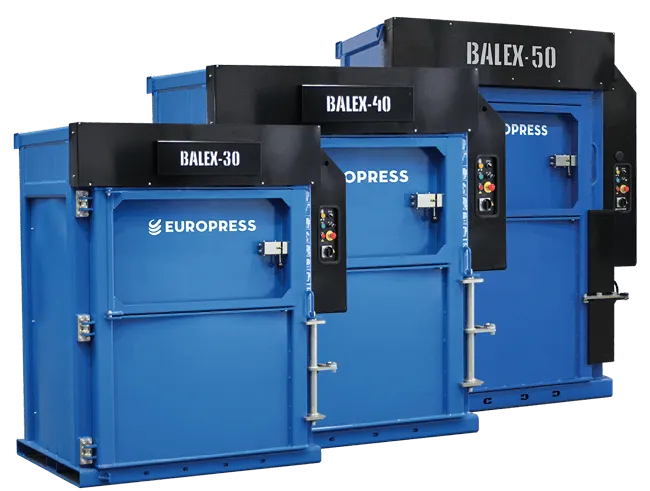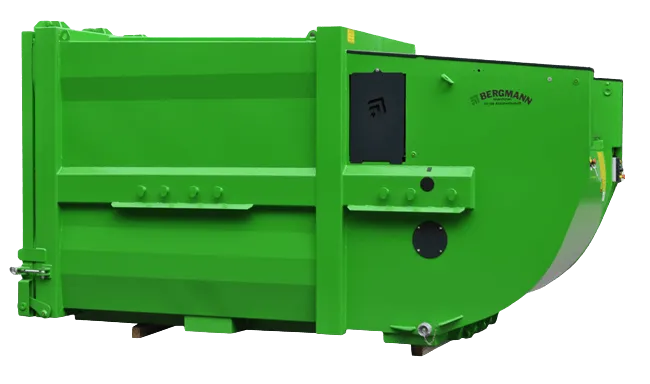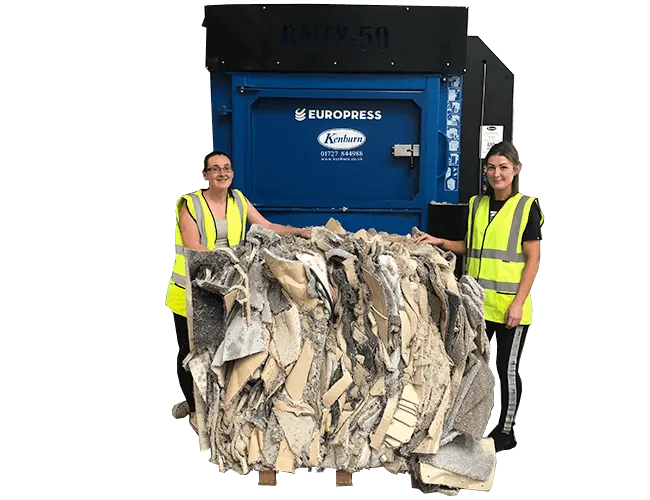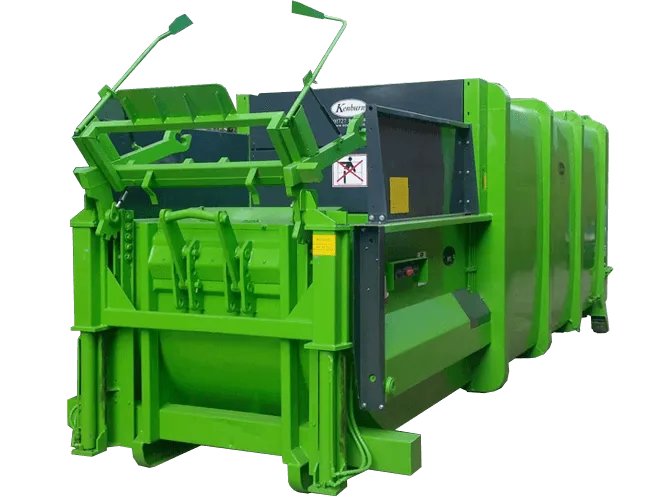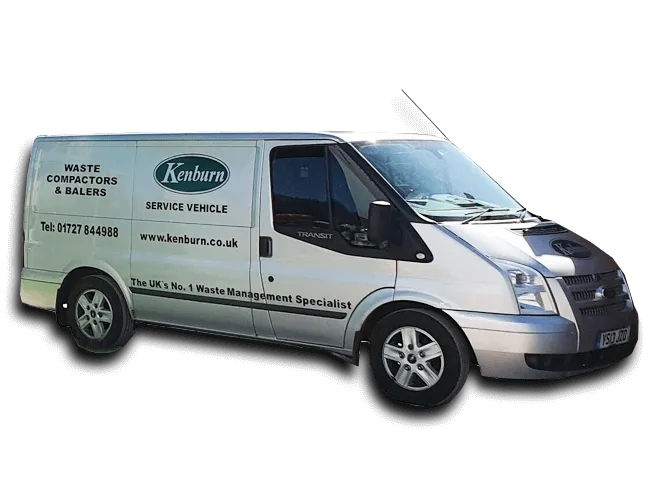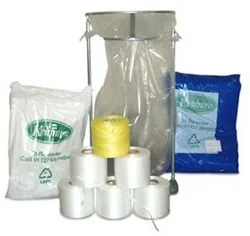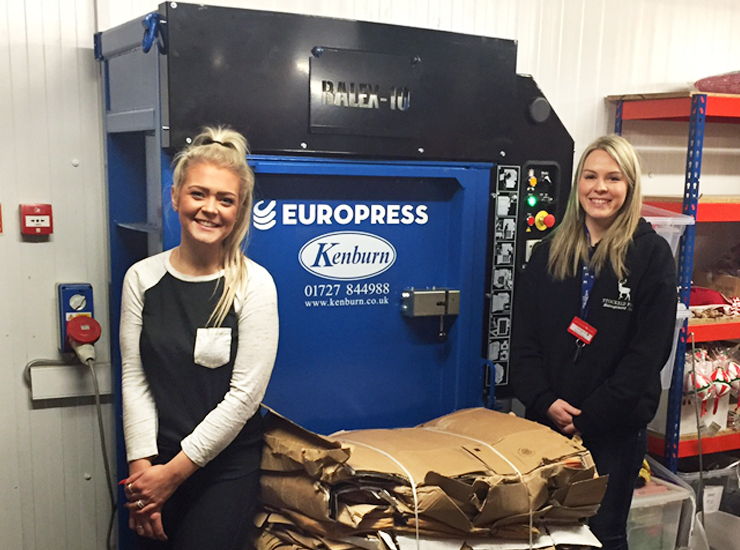 Managing waste efficiently isn’t just about keeping your site clean – it can also save you money and help your business meet sustainability targets. If you’re looking into commercial waste solutions, you’ve probably come across two common options: waste balers and waste compactors. But what’s the difference, and which one do you really need? In this article, we’ll break it down simply, so you can make the best decision for your business.
Managing waste efficiently isn’t just about keeping your site clean – it can also save you money and help your business meet sustainability targets. If you’re looking into commercial waste solutions, you’ve probably come across two common options: waste balers and waste compactors. But what’s the difference, and which one do you really need? In this article, we’ll break it down simply, so you can make the best decision for your business.
It’s important to note that not all compactors are used for general waste. While static and portable compactors are typically used for non-recyclable waste, other types like Roto Compactors and Jumbo Roll Packers are often used to compact recyclable materials. Understanding these differences is key to selecting the right equipment.
At Kenburn Waste Management, we supply a wide range of high-quality waste balers and compactors of all kinds, to help businesses manage waste more effectively. With over 35 years’ experience in the industry, we offer expert advice and reliable equipment tailored to your needs.
What is a Waste Baler?
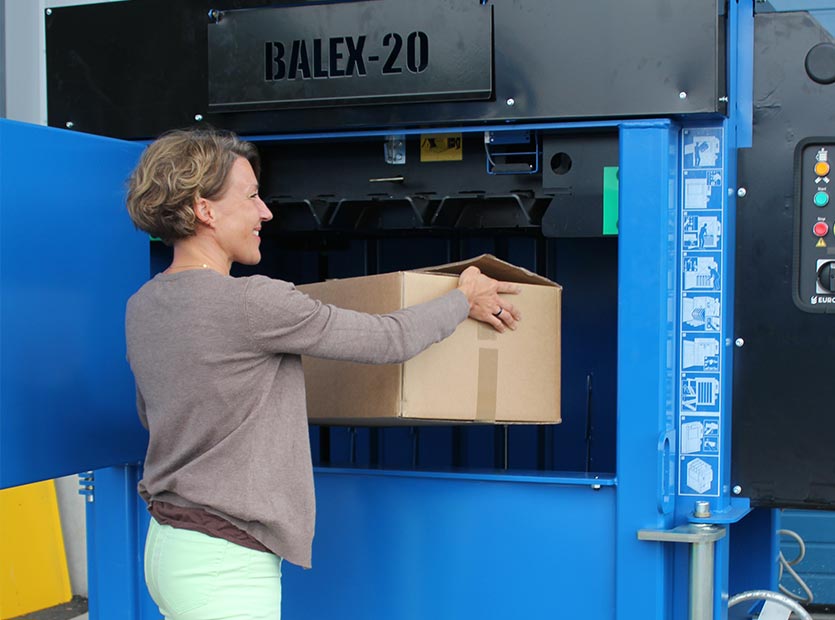 A waste baler is a machine designed to compress recyclable materials – like cardboard, plastics, paper, and metals – into compact, manageable bales. These bales are easy to store and transport, and in many cases, you can even sell them to recycling companies for an additional revenue stream.
A waste baler is a machine designed to compress recyclable materials – like cardboard, plastics, paper, and metals – into compact, manageable bales. These bales are easy to store and transport, and in many cases, you can even sell them to recycling companies for an additional revenue stream.
Typical users include:
- Retail shops
- Warehouses and distribution centres
- Recycling centres
- Large offices
- Supermarkets
- Hospitality venues
Key benefits of using a waste baler:
- Space-saving: Reduces the storage space needed for recyclables.
- Cost-saving: Reduces waste collection costs, as fewer collections are needed.
- Revenue generation: Potential to earn money from selling baled materials.
- Improved safety and tidiness: Baled waste is safer to store and handle.
- Environmental impact: Encourages recycling and helps businesses achieve sustainability goals.
Kenburn offers a wide range of balers, from vertical balers like the Europress Balex 30 perfect for limited spaces, to large horizontal balers such as the KH50 Semi Automatic baler ideal for high-volume users.
What is a Waste Compactor?
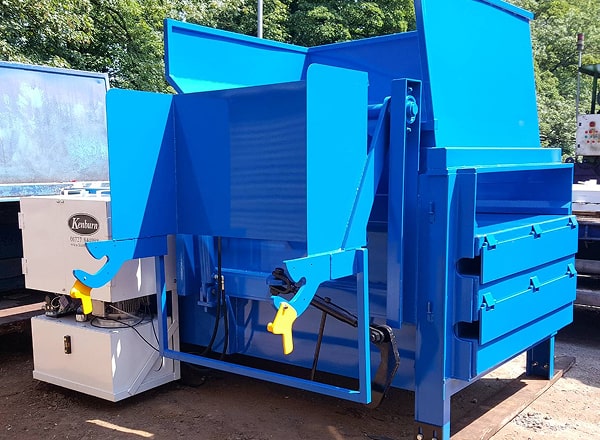
A waste compactor is designed to compress waste materials to reduce their volume. There are different types of compactors, each suited to different applications.
- Static and portable compactors are typically used for non-recyclable, general waste such as food waste, contaminated packaging, and general office waste.
- Roto Compactors and Jumbo Rollpackers, however, are often used to compact recyclable materials like cardboard, plastic, and even wooden pallets. These are ideal for businesses that generate bulky recyclable waste but don’t require bales.
Typical users include:
- Restaurants and food production facilities
- Hotels and resorts
- Office buildings
- Manufacturing and industrial sites
- Hospitals and healthcare facilities
Key benefits of using a waste compactor:
- Volume reduction: Compresses waste to a fraction of its original size.
- Lower collection costs: Fewer collections mean lower disposal fees.
- Improved hygiene: Keeps waste areas cleaner and reduces pest problems.
- Compliance: Helps businesses comply with waste management and environmental regulations.
- Safety: Reduces risks associated with overflowing bins and waste handling.
Kenburn supplies an extensive range of waste compactors, including static versions such as the Kenburn Select range here and portable models such as the Bergmann APB 1620. Whether you need a compact solution for small sites or heavy-duty equipment for industrial premises, we can recommend the best compactor for your operation.
Waste Baler vs Compactor: What’s the Difference?
Although they may look similar, waste balers and compactors serve very different purposes.
Here’s a quick comparison:
| Feature | Waste Baler | Waste Compactor |
| Main Purpose | Recycling | General Waste Disposal |
| Type of Waste | Cardboard, plastics, metals, paper | Mixed, non-recyclable waste |
| End Product | Bale for recycling | Compressed waste for landfill/incineration |
| Revenue Potential | Yes, from selling recyclables | No |
| Environmental Impact | Supports recycling | Reduces landfill space usage |
| Collection Frequency | Less frequent for recyclables | Less frequent for general waste |
One critical distinction is that balers generally prepare waste for recycling, while compactors prepare waste for disposal.
How to Choose Between a Waste Baler and a Waste Compactor
Choosing the right equipment isn’t just about the type of waste you produce. Several factors should be considered:
- Type of Waste Produced
- If your business generates large amounts of recyclable materials such as cardboard and plastics, a baler will be more beneficial.
- If most of your waste is general rubbish that cannot be recycled, a compactor is the better choice.
- Volume of Waste
- High volumes of recyclable material justify investing in a larger or more powerful baler.
- High volumes of mixed waste require a robust compactor to manage the load efficiently.
- Available Space
- We always advise that wherever possible waste balers are installed indoors.
- Compactors are generally larger and may require outdoor installation with suitable access for waste collection trucks.
- Budget
- Balers may offer a return on investment through the sale of recyclables.
- Compactors mainly provide cost savings through reduced collection frequencies.
- Environmental Goals
- Businesses aiming to boost their recycling rates and reduce their environmental impact may favour balers.
- Compactors help by reducing landfill usage but don’t directly support recycling initiatives.
- Operational Needs
- Consider ease of use, maintenance requirements, and staff training.
- Some balers and compactors offer additional features like automatic loading and remote monitoring.
Kenburn’s knowledgeable team can help you assess your needs and recommend the ideal waste baler or compactor solution for your business.
When You Might Need Both a Baler and a Compactor
Some businesses benefit from using both types of equipment. For example:
- Retail chains may bale recyclable packaging waste and compact general store waste.
- Hotels might bale cardboard boxes from deliveries and compact kitchen waste.
- Large manufacturers often have separate waste streams that require different handling solutions.
By separating recyclable materials and general waste at the source, businesses can streamline waste management processes, cut costs, and boost sustainability credentials.
Kenburn can design a bespoke waste management system that integrates both baling and compacting, helping you achieve maximum efficiency. Simply get in touch today to speak to one of the team.
Example: A Supermarket Chain
A UK supermarket chain is a great example of where you might need to introduce both waste balers and compactors across its stores. Cardboard packaging is baled and sent for recycling, generating additional income. Meanwhile, food waste and contaminated packaging are compacted, dramatically reducing waste collection frequencies and cutting disposal costs by over 30% annually.
This integrated approach not only improves operational efficiency but also helps the chain meet strict environmental and recycling targets, strengthening its brand reputation as an eco-conscious retailer.
At Kenburn, we have helped many organisations implement similar solutions tailored to their specific needs in all kinds of industries.
Conclusion: Waste Baler or Compactor – Which Is Best for You?
Choosing between a waste baler and a waste compactor ultimately depends on your business’s specific waste management needs. If you’re focused on recycling and potentially generating revenue, a baler could be the way to go. If your priority is reducing the cost and hassle of general waste disposal, a compactor may be more suitable.
For some businesses, the best solution might be a combination of both.
Need help choosing the right waste management equipment?
Kenburn Waste Management offers expert advice, high-quality balers and compactors, and ongoing support to businesses across the UK. Our team is ready to help you find the perfect solution.
Contact us today for friendly advice, equipment hire, or a free, no-obligation quote.

